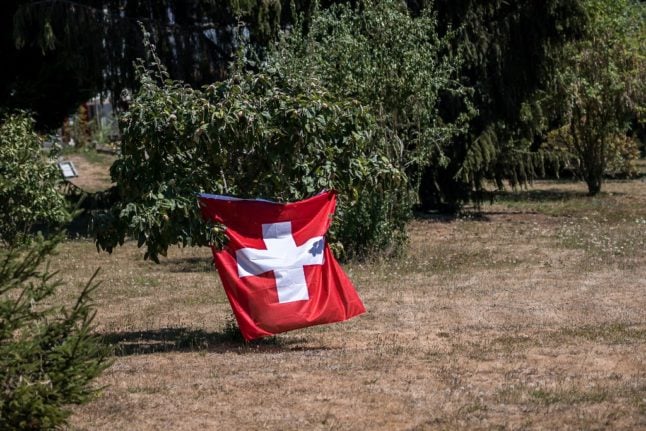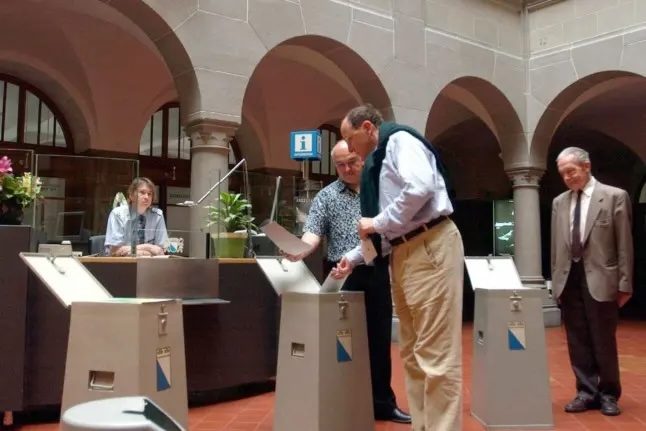The sovereigntist organisation Pro Schweiz has collected more than enough signatures to launch a vote aimed at better anchoring Swiss neutrality in the country’s constitution, its vice president Walter Wobmann told Blick newspaper.
They want to restrict non-military measures such as sanctions, to prevent any closer ties with NATO and to rule out any military alliance except if attacked.
Under Switzerland’s direct democracy system, citizens can trigger popular votes by collecting 100,000 valid signatures within 18 months.
“We collected nearly 140,000 signatures,” Wobmann said. “On April 11th, we will submit the initiative” to the federal authorities. “Until then, we will continue to collect signatures.”
Once petition signatures are submitted and verified, it generally takes months, or even years, before a vote takes place.
Switzerland’s traditional position is one of well-armed military neutrality.
It has refused to send arms to Kyiv or allow countries that hold Swiss-made weaponry to re-export it to Ukraine.
But it has matched the neighbouring European Union’s economic sanctions on Russia since the February 2022 full-scale invasion of Ukraine — a move vigorously denounced by the hard-right Swiss People’s Party (SVP), the biggest party in the country.
Matching the EU sanctions has also been criticised by Moscow, which no longer sees Switzerland as neutral territory for international negotiations and has blocked UN-sponsored talks on Syria from resuming in Geneva.
Fewer sanctions proposed
The Swiss constitution already ensures that parliament and the government must uphold Switzerland’s neutrality, but Pro Switzerland wants to go further.
Their vote proposal calls for the constitution to guarantee that Swiss neutrality is “armed and perpetual” and applied “permanently and without exception”.
Non-military coercive measures — namely sanctions — would also be prohibited, except when decided upon by the United Nations.
Pro Schweiz is also opposed to closer ties with NATO and wants the constitution to prohibit joining a military alliance, except in the event of a direct military attack against the country.
“Only when we are directly attacked could we ally ourselves with others. If we are turned into a party to war, we must defend ourselves,” said Wobmann, a former SVP lawmaker.
Swiss neutrality traces its roots back to 1516 and has been internationally recognised since 1815.
Switzerland cannot participate in wars between other countries, forge military alliances, or grant troops, weapons or territorial transit rights to warring parties.
All men are obliged to do military service and attend refresher courses for years afterwards.
The neutrality laws do not apply to civil wars, or military operations authorised by the UN Security Council.



 Please whitelist us to continue reading.
Please whitelist us to continue reading.
“…They want to restrict non-military measures such as sanctions, to prevent any closer ties with NATO and to rule out any military alliance except if attacked” Being in an alliance is a two way street and joining one when attacked is already too late.